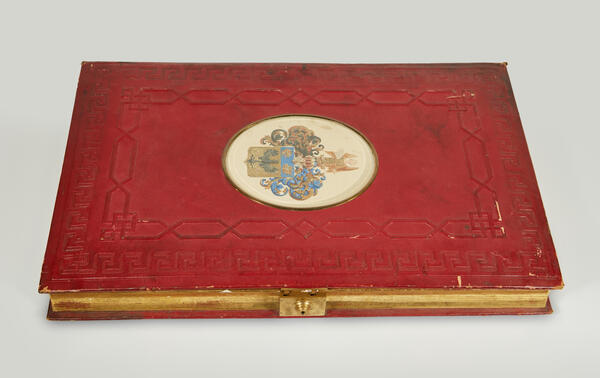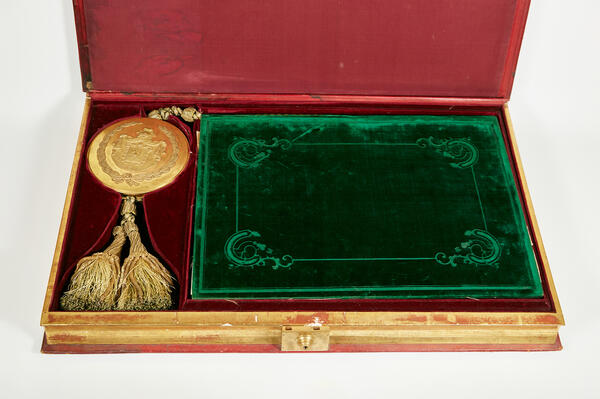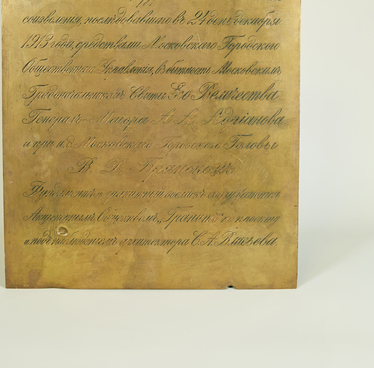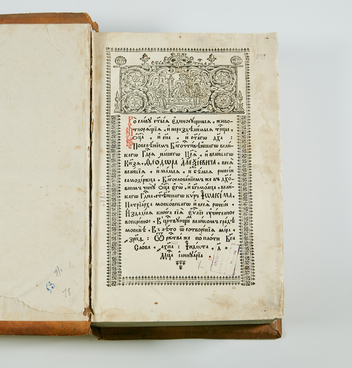This is a patent granting noble status to State Councilor Yermolay Mikhailovich Gromov.
Yermolay Gromov joined public service on February 22, 1844. In 1864, he became a court councilor and was awarded the Order of St. Stanislaus, Second Class. In 1866, he became a collegiate councilor. In 1872, he was awarded the Order of St. Anne, Second Class. In 1873, he was awarded the Order of St. Vladimir, Fourth Class, for his diligence in establishing the Sevastopol department. In 1872, he was promoted to the rank of State Councilor. In 1874, Yermolay Gromov was awarded the Order of St. Vladimir, Fourth Class, and was elevated together with his children Sergey, Vera, Lidia, Sophia and Nadezhda to hereditary nobility with the right of being listed in the third part of the genealogical book of noble families.
Hereditary nobility was passed down from parents to children. If a family received a patent of nobility, it was possible to apply for its inclusion in governorate genealogical books. The Governing Senate considered proofs of nobility and affirmed rights to honorary titles, issued patents, diplomas and other documents certifying those rights, provided coats of arms and armorials of nobility, and supervised cases of promotion to civil ranks by virtue of long service.
Any public service — as a military or courtier — was considered the most important duty of any nobleman, hence, Peter I included in the “Table of Ranks” an important mechanism for obtaining personal and hereditary nobility. Even in this matter, military servicemen had a considerable advantage over civil and court ones, which included, for example, masters of ceremonies, privy councilors: their first and lowest officer’s rank of the 14th class gave them the right to pass the nobility status on to their children. As for the civil and court ranks, they acquired the right to personal nobility starting from the rank of the 4th class, and to hereditary nobility — only from the 8th class and higher. Such rules were in force from the moment the “Table of Ranks” was introduced until the Manifesto of Emperor Nicholas I of June 23, 1845.
Nicholas I, the grandson of Catherine II, made the procedure more complicated: the right to receive hereditary nobility was acquired by military servicemen only after they reached the rank of staff officer — the 8th class (majors), and civilians — from the 5th class (state councilors). Emperor Alexander II raised the requirements for obtaining hereditary nobility once again, granting it only to colonels and active state Councilors.




